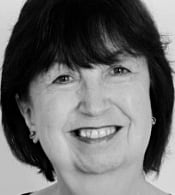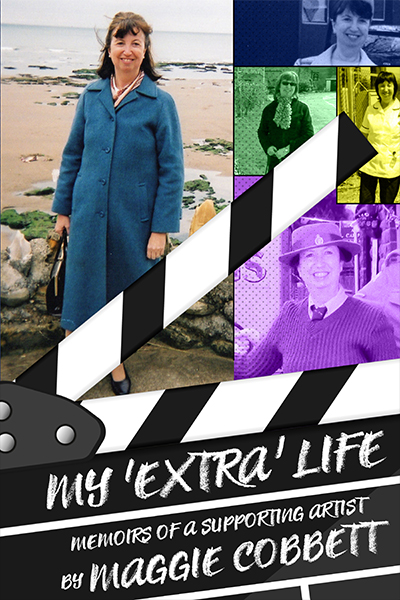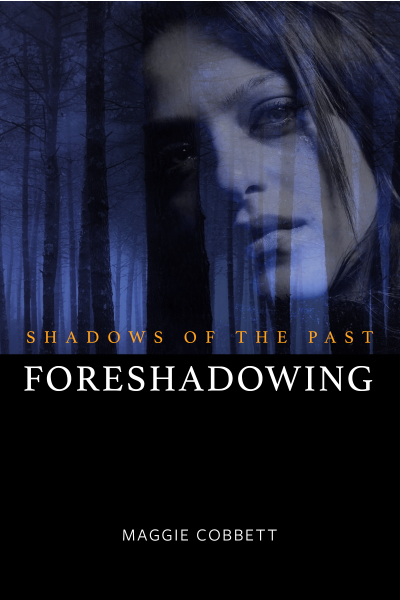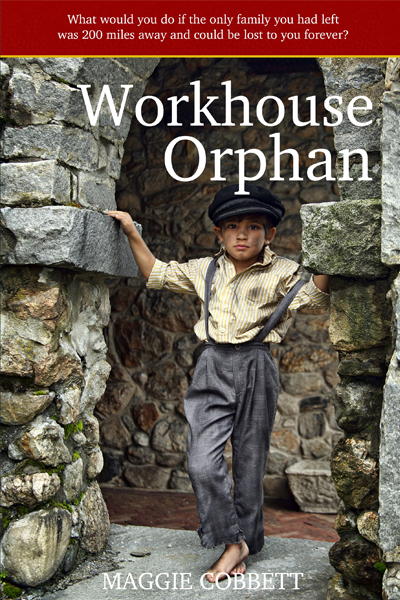Hello, and thank you for visiting my site. I hope that you'll return often and always find something of interest about my world and what inspires me to pick up a pen. (This is a figure of speech, unfortunately. My handwriting is terrible!) Here's what I've been up to recently...
‘Hearth’ – a literary weekend in Wales
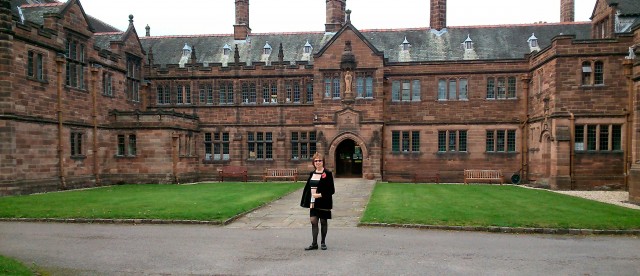
Until a couple of weeks ago, I’d never heard of Gladstone’s Library in Hawarden. Now, I can’t wait to go there again. It’s Britain’s finest residential library, founded by Prime Minister William Ewart Gladstone and now, well over a century later, a fine tribute to his vision. The brochure invites visitors to ‘Read, Write, Relax And Become Inspired’ and I did all of those in the space of 24 hours. Should you wish to follow my example, you’ll find all you need to know at www.gladstoneslibrary.org.
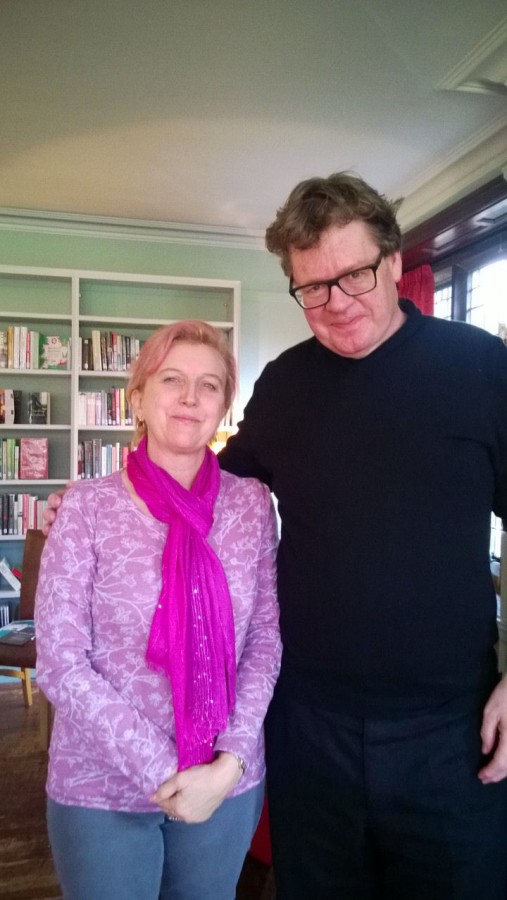
My being there last weekend was pure serendipity. My friend and fellow Ripon Writers’ Group member Cathy Grimmer – seen above with James Runcie – won the stay in a competition and invited me along as her ‘plus one’. I was agreeably surprised to find that everything was under one very large roof.
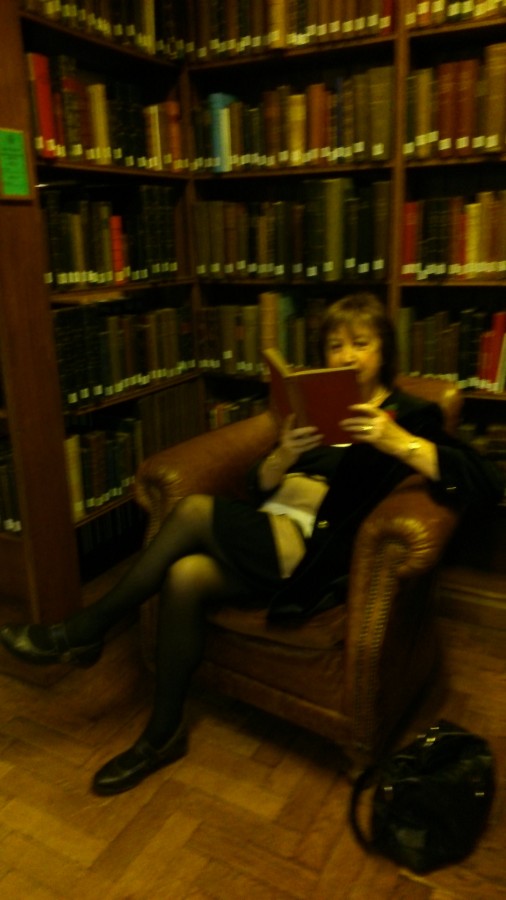
The actual library with its collection of more than a quarter of a million books is, of course, always going to be the star of the show. I could easily have devoted my whole stay to sitting in a comfortable leather armchair and reading through a tiny fraction of the volumes on offer. However, a full programme awaited us, as well as regular pauses for refreshment from the ‘Food For Thought’ coffee shop.
After a cup of tea and guided tour, we went to our first official session. Lucy Gough, who has written extensively for TV, radio and stage, had prepared a two hour workshop on writing radio drama. The ten of us seated around the table with Lucy read through Timothy West’s spoof, ‘This Gun That I Have In My Right Hand Is Loaded’, which demonstrates in no uncertain terms how NOT to write for radio. This was followed by a study of the very different emotions that can be unleashed in individuals by a single piece of music. Lucy’s advice was ALWAYS to start with sound, musical or otherwise, to set the mood for the play to follow. She went on to warn against the pitfalls of trying to place a play not specifically written with radio in mind. Pieces originally written for the stage of television simply will not do.
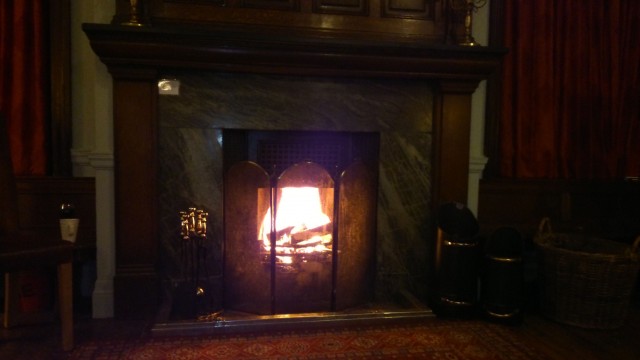
The reason for the title of our literary weekend became apparent after dinner, taken refectory style in a large and comfortable dining room. Although the weather continued to be unseasonably mild for the time of year, the log fire in the Gladstone Room was lit with a flourish and everyone gathered round, wine glass in hand, for the first ’round the hearth’ session with the writers in residence.
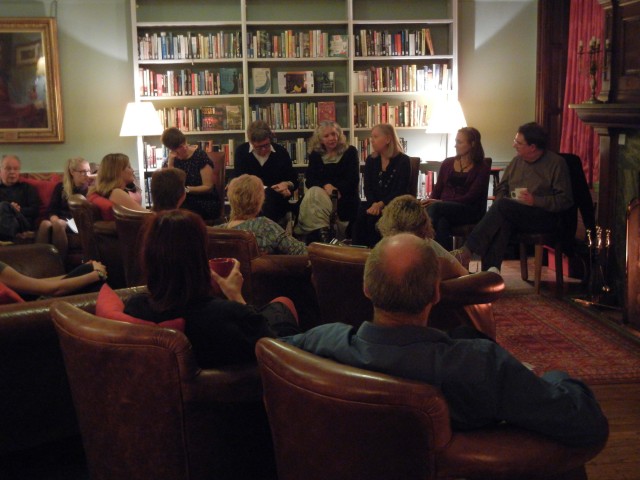
Flanked by staff member Louisa and Warden Peter Francis, these were – from left to right – James Runcie (Grantchester Mysteries), Lucy Gough, Patricia Bracewell (Shadow On The Crown) and Rebecca Abrams (Touching Distance). All were more than willing to field questions about their work and to linger late into the night to chat with us all. (Thank you also, Patricia, for generously sharing this photograph with me.) Cathy and I, eager not to miss a word, can be seen sitting in the middle of the front row.
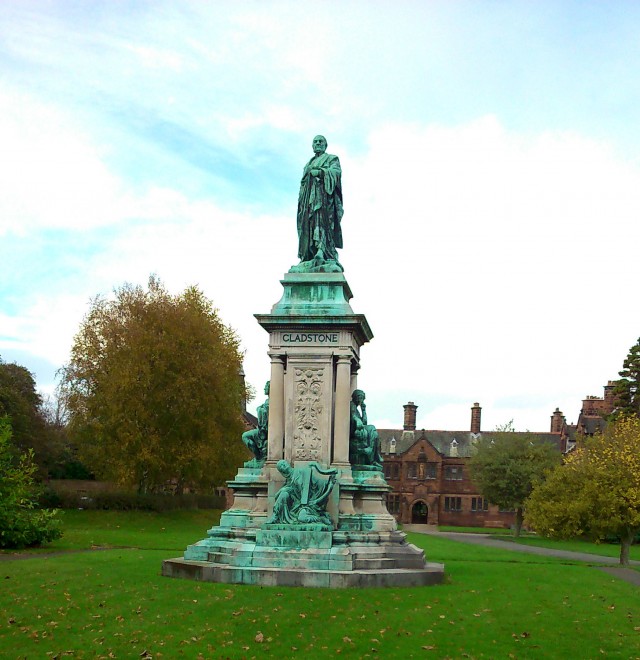
After a good night’s sleep in our comfortable en suite accommodation and a hearty breakfast, there was time to stretch our legs in the extensive grounds before going to a talk by James Runcie. His Grantchester novels and the television series based on them are set in post-war Britain, starting off in 1953. James freely admitted that his main character was loosely based on his own father. The late Robert Runcie was Archbishop of Canterbury from 1980-1991 and, like Sydney Chambers, had served in the Scots Guards. James wanted his vicar turned detective to be as far away as possible from the Derek Nimmo character in ‘All Gas and Gaiters’ and for the crimes he solves not to be ‘cosy’. Decency, integrity, trust and loyalty all feature heavily in the stories and, while historical events play their part, they are carefully integrated rather than ‘dumped’. (The Times of the day, now available electronically, is an invaluable resource.) James warned all potential writers of historical fiction to be vigilant against the inclusion of sloppy anachronisms and inaccurate biblical quotations – the latter possibly springing from the lack of religious background of most copy editors these days! Having novels adapted for television, whilst undoubtedly profitable, can also be a painful experience for a writer. James admitted that he had won some points but had had to let others go.
Lunch followed and then our final session ’round the hearth’. On this occasion, the discussion was all about inspiration, working methods and the need to be single minded – even selfish – about setting aside enough time to write. The writers in residence all agreed that very few authors can exist purely on the profits from their writing and almost all have other ways of earning a crust. Support from their nearest and dearest is also crucial and James Runcie – whose wife was also present at this session – quipped that the essential thing was to marry the right person in the first place.
To stretch our legs before the long drive back, we had a quick stroll through part of the grounds of Hawarden Castle, the former home of William Gladstone. Open to the public, they are impressive and it would be good to explore them further on our next visit.
If you’re interested in forthcoming events at the Gladstone Library, I’d encourage you to visit the website www.gladstoneslibrary.org.
4 November, 2014 - Make the first comment on this story
